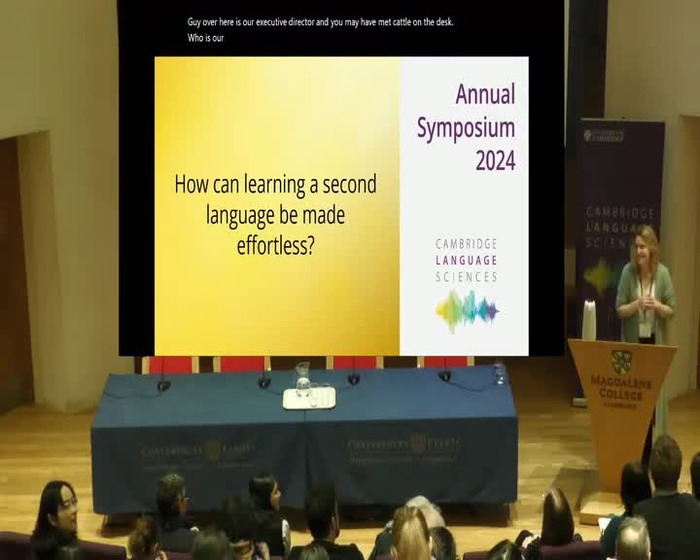Abstract
It is widely believed that children excel at language learning, yet adults consistently outperform children in the lab. This talk will present a series of studies to show that while adults encode novel words very rapidly, children show greater gains in memory performance by later tests. These findings will be interpreted within a complementary learning systems framework (Davis & Gaskell, 2009; McClelland et al., 2020), which distinguishes between rapid hippocampal-based encoding processes and slower consolidation into long-term knowledge. I will consider the proposal that prior knowledge and sleep-associated mechanisms differentially support consolidation at different stages of development, and discuss how this shift could account for language learning differences from childhood to adulthood.
Video




